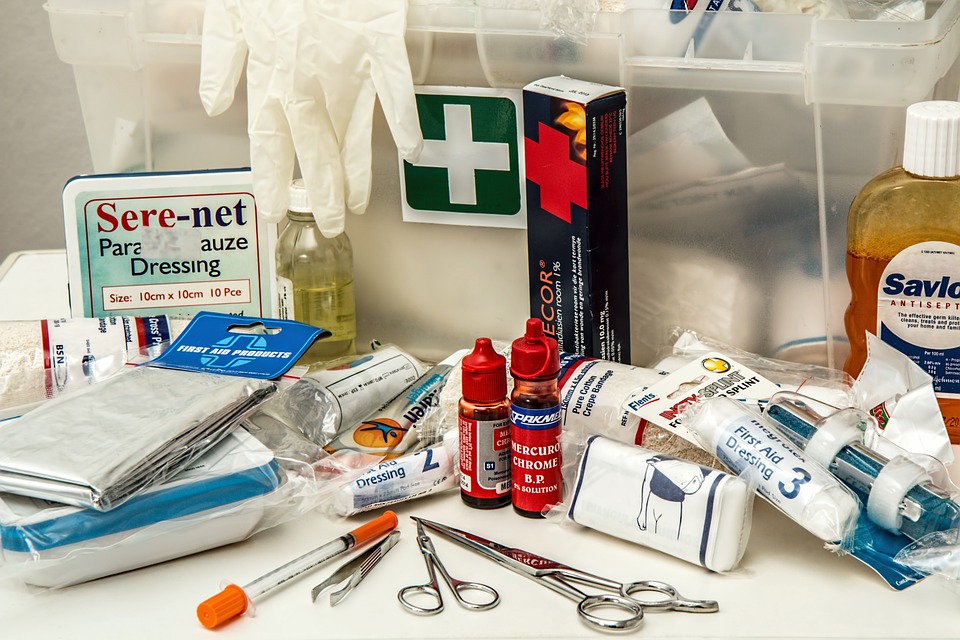Burns can happen, especially during the holidays when cooking up a feast for family and friends. But burns can easily be treated, and here is how to do it.
From touching very hot water to accidentally touching a very hot surface or pot without using oven mitts or a potholder, burns can appear if you are not careful. These burns can either leave the skin with scars or cause blisters which can be very painful. Fortunately, there are a few steps in making sure that a burn will not leave any part of the body blistered or scarred.
Most of the time, burns can easily be treated at home, but if in the event that the burn may be very severe in appearance, then it may require a visit to the hospital. In the case of the former, according to the British Red Cross, there are three steps to treating that burn. First, the affected area needs to be placed under cool running water for at least 10 minutes. This will reduce the swelling that may happen as well as alleviate the pain and reduce the risk of scarring even after it has healed.
Second, is to cover the affected area with cling film or a plastic bag. This will help keep the burn from getting infected. Using cling film or a plastic bag, those materials will not cling to the burn and will keep the air out.
The third is to call the local hospital in case the burn is too severe for a home remedy. It will need to be treated at the hospital if the burn is larger or deeper than a person’s hand, if it caused white or charred skin, burns that cause blisters, or burns as a result of chemicals or electricity. Other indicators that the burn may need urgent medical assistance is if the person is over the age of 60 or under the age of five years old, going into shock, is pregnant, has a preexisting injury or condition, or a weak immune system.
Along with treating burns, those who may fall ill over the holidays, especially with contagious illnesses may need to skip the gatherings or parties so as not to infect others. Other incidents such as cuts and food poisoning can be remedied. However, those who are on blood thinners like aspirin may need to see a doctor as if they suffer from cuts, may end up bleeding for longer.



 TrumpRx.gov Highlights GLP-1 Drug Discounts but Offers Limited Savings for Most Americans
TrumpRx.gov Highlights GLP-1 Drug Discounts but Offers Limited Savings for Most Americans  Sanofi Reports Positive Late-Stage Results for Amlitelimab in Eczema Treatment
Sanofi Reports Positive Late-Stage Results for Amlitelimab in Eczema Treatment  Hims & Hers Halts Compounded Semaglutide Pill After FDA Warning
Hims & Hers Halts Compounded Semaglutide Pill After FDA Warning  Viking Therapeutics Sees Growing Strategic Interest in $150 Billion Weight-Loss Drug Market
Viking Therapeutics Sees Growing Strategic Interest in $150 Billion Weight-Loss Drug Market  Novo Nordisk and Eli Lilly Cut Obesity Drug Prices in China, Boosting Access to Wegovy and Mounjaro
Novo Nordisk and Eli Lilly Cut Obesity Drug Prices in China, Boosting Access to Wegovy and Mounjaro  Royalty Pharma Stock Rises After Acquiring Full Evrysdi Royalty Rights from PTC Therapeutics
Royalty Pharma Stock Rises After Acquiring Full Evrysdi Royalty Rights from PTC Therapeutics  U.S. Vaccine Policy Shifts Under RFK Jr. Create Uncertainty for Pharma and Investors
U.S. Vaccine Policy Shifts Under RFK Jr. Create Uncertainty for Pharma and Investors  Weight-Loss Drug Ads Take Over the Super Bowl as Pharma Embraces Direct-to-Consumer Marketing
Weight-Loss Drug Ads Take Over the Super Bowl as Pharma Embraces Direct-to-Consumer Marketing  Novo Nordisk and Eli Lilly Cut Obesity Drug Prices in China as Competition Intensifies
Novo Nordisk and Eli Lilly Cut Obesity Drug Prices in China as Competition Intensifies 































